Contents

About the Authors
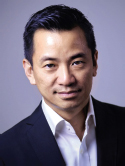 Rejected by Princeton for its PhD program, Eric Sim, CFA, PRM, was devastated he couldnt become an academic. He continued his banking career, working for Citi in Singapore, Shanghai and Hong Kong before joining UBS Investment Bank as a managing director. While in banking, he taught part time at the Hong Kong University of Science and Technology as an Adjunct Associate Professor of Finance, and at Tsinghua University as a guest lecturer. A key opinion leader on LinkedIn, Sim is now one of the most sought-after speakers and career coaches globally. He is the founder of Institute of Life, whose mission is to train young professionals to become successful at work and in life. A street food lover, Sim graduated from the National University of Singapore with an engineering degree, and from Lancaster University with an MSc in Finance. Read more about him on LinkedIn: linkedin.com/in/simeric/
Rejected by Princeton for its PhD program, Eric Sim, CFA, PRM, was devastated he couldnt become an academic. He continued his banking career, working for Citi in Singapore, Shanghai and Hong Kong before joining UBS Investment Bank as a managing director. While in banking, he taught part time at the Hong Kong University of Science and Technology as an Adjunct Associate Professor of Finance, and at Tsinghua University as a guest lecturer. A key opinion leader on LinkedIn, Sim is now one of the most sought-after speakers and career coaches globally. He is the founder of Institute of Life, whose mission is to train young professionals to become successful at work and in life. A street food lover, Sim graduated from the National University of Singapore with an engineering degree, and from Lancaster University with an MSc in Finance. Read more about him on LinkedIn: linkedin.com/in/simeric/
 Simon Mortlock is an experienced writer and editor, and an expert in producing B2B and B2C content across a range of digital channels, including articles, videos, webinars, ebooks, and white papers. He specializes in employment-related topics, and currently works as a Content Manager at eFinancialCareers (eFC), a website that empowers financial services and technology careers. Mortlock, who was previously the companys Asia Pacific Editor, joined eFC more than 10 years ago and has since been based in both Singapore and London. He has degrees in Law and History from the University of Auckland, as well as a Postgraduate Diploma in Journalism. Follow him on LinkedIn: linkedin.com/in/simonmortlockeditor/
Simon Mortlock is an experienced writer and editor, and an expert in producing B2B and B2C content across a range of digital channels, including articles, videos, webinars, ebooks, and white papers. He specializes in employment-related topics, and currently works as a Content Manager at eFinancialCareers (eFC), a website that empowers financial services and technology careers. Mortlock, who was previously the companys Asia Pacific Editor, joined eFC more than 10 years ago and has since been based in both Singapore and London. He has degrees in Law and History from the University of Auckland, as well as a Postgraduate Diploma in Journalism. Follow him on LinkedIn: linkedin.com/in/simonmortlockeditor/
01
What is a Combo Specialist?
I regularly advise the next generation about their career ambitions. No matter their degree or industry, many young people I chat with ask me this binary question: Should I be a generalist or a specialist in my career? I reply that its best not to be pigeonholed into either extreme.
As industries are disrupted by technology and big trends outside of your control, your career will inevitably go through periods of drastic change. You should avoid becoming a generalist because your lack of in-depth knowledge means you could be replaced very easily. But you dont want to be a one-dimensional specialist because you run the risk of becoming obsolete when your industry gets disrupted. Instead, you should aim to be a combo specialist.
Let me illustrate this by using the combo meal at McDonalds as an analogy. This typically consists of a burger, a pack of French fries and a glass of Coke. The burger is your primary specialization, the fries are your secondary specialization, and the Coke is your interest. Ive had several combos during my career.
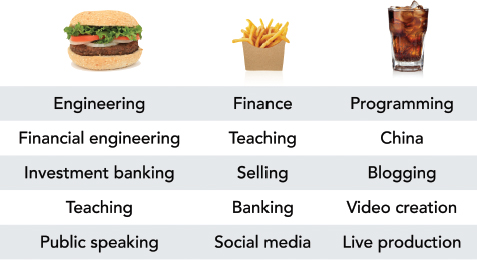
When I got my first job in banking after graduating with an engineering degree, my burger was engineering, my fries were my financial skills, and my Coke was computer programming. I had to quickly learn about financial markets to make finance my burger. While I wasnt confident enough socially at that time to perform well in foreign-exchange sales, my bosses noted the high quality of my analytical work. I was given more tasks that involved analyzing the financial markets. I also used my interest in computer programming to automate repetitive tasks.
As my career progressed, financial engineering became my burger. I was able to structure and price complex financial products. Teaching was my fries, while my interest in China was my Cokeso I ended up teaching my colleagues in China about financial engineering.
After several years in Singapore, I moved to Shanghai and then Hong Kong to cover Chinese corporate and institutional clients. Offering investment banking solutions suitable for mainland customers was my burger, my selling skills were my fries, and my interest in blogging became my Coke.
As a university lecturer, my teaching skills are my burger. But I also add extra value (i.e. fries) by incorporating lessons from my banking deals (without mentioning clients names) into my banking and finance lectures, so students get a taste of real-life transactions. Ive recently developed an interest in making videos (my Coke), which comes in handy because students are increasingly watching lectures online.
My university work has led me to become a professional speaker (my burger). I give talks to large audiences on career and life skills, and Im able to charge speaking fees. Many of my gigs were moved online during the pandemic, but I turned this to my advantage. Before COVID-19, conference producers could get attendees by hosting their sessions at fancy hotels and offering networking opportunities. But with online events, organizers rely much more on the brand names of the speakers to pull in the crowds. When the pandemic started, I already had a strong social media presence (my fries) to help attract people to webinars. My interest in using a live production switcher (my Coke) allows me to deliver higher quality productions. I get more work as a speaker because of this combo skill set.
The three main benefits of becoming a combo specialist are:
You can gradually change your specializations into new areas as you combine your core and secondary skills with your interests.
You have a competitive edge over one-dimensional specialists.
You enjoy your job more because youre incorporating your interests into your work (read more in ).
If youre an engineer, you could be even more in demand if you add design skills. And if you like photography, that could be your Coke. Create your own combo to suit your career ambitions. Many industries will be disrupted whether by technology, a pandemic or something else and having a combo skill set will help you cope with changes that come your way because youll be nimbler and more adaptable, and have more to offer your employer. Be a combo specialist; be unique.
02
Why You Need a Second Career
Its difficult to derive everything we want in life from just one job because most of us are looking for that elusive blend of money, meaning and happiness. Your day job is bound by an employment contract, which is like an SPA (sale and purchase agreement) in an M&A (mergers and acquisitions) transaction. Theres a buyer (you) and theres a seller (your employer). You sell your time and services in exchange for money. But in this transaction, theres no mention of either meaning or happiness, so its unfair and unrealistic to expect your employer to deliver all three essential elements of your life.
Instead, I try to get each component from a different job or interest: banking gives me money; teaching gives me meaning; and speaking and writing give me happiness. My conference speeches take me to new places, where I learn about other cultures, while blogging creates opportunities to make high-quality connections.
Im not alone in doing a broad range of activities as I seek a fulfilling life. Im meeting more and more professionals who are taking on new tasks away from their core job. Im not talking about the old trend of people quitting the sector they work in altogether; Im referring to those who are staying in the same industry while pursuing an additional career at the weekend, after work and during their annual leave. Let me first explain why you might want to have a side job, and then explore how you can make a success of one.

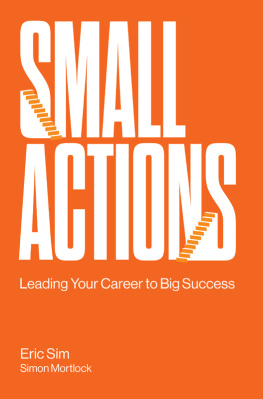

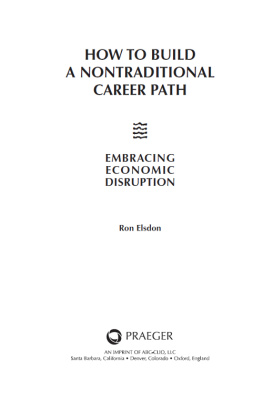
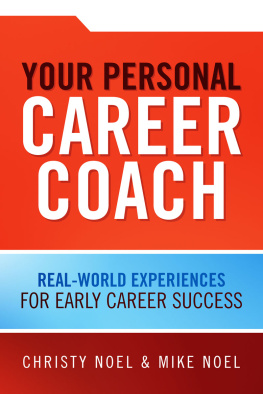
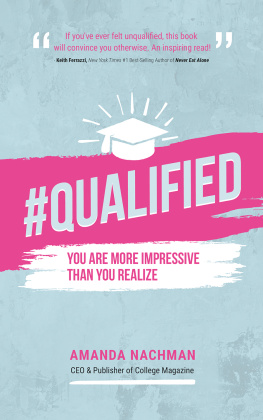
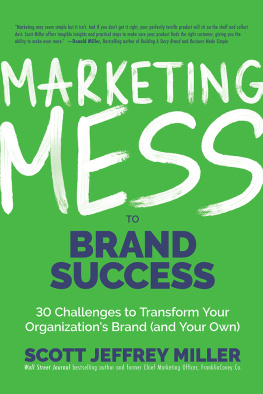
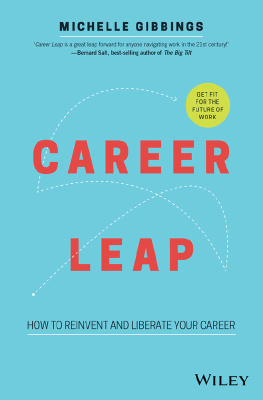
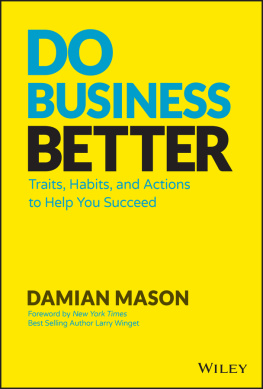
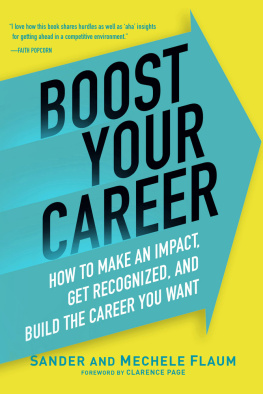

 Rejected by Princeton for its PhD program, Eric Sim, CFA, PRM, was devastated he couldnt become an academic. He continued his banking career, working for Citi in Singapore, Shanghai and Hong Kong before joining UBS Investment Bank as a managing director. While in banking, he taught part time at the Hong Kong University of Science and Technology as an Adjunct Associate Professor of Finance, and at Tsinghua University as a guest lecturer. A key opinion leader on LinkedIn, Sim is now one of the most sought-after speakers and career coaches globally. He is the founder of Institute of Life, whose mission is to train young professionals to become successful at work and in life. A street food lover, Sim graduated from the National University of Singapore with an engineering degree, and from Lancaster University with an MSc in Finance. Read more about him on LinkedIn: linkedin.com/in/simeric/
Rejected by Princeton for its PhD program, Eric Sim, CFA, PRM, was devastated he couldnt become an academic. He continued his banking career, working for Citi in Singapore, Shanghai and Hong Kong before joining UBS Investment Bank as a managing director. While in banking, he taught part time at the Hong Kong University of Science and Technology as an Adjunct Associate Professor of Finance, and at Tsinghua University as a guest lecturer. A key opinion leader on LinkedIn, Sim is now one of the most sought-after speakers and career coaches globally. He is the founder of Institute of Life, whose mission is to train young professionals to become successful at work and in life. A street food lover, Sim graduated from the National University of Singapore with an engineering degree, and from Lancaster University with an MSc in Finance. Read more about him on LinkedIn: linkedin.com/in/simeric/ Simon Mortlock is an experienced writer and editor, and an expert in producing B2B and B2C content across a range of digital channels, including articles, videos, webinars, ebooks, and white papers. He specializes in employment-related topics, and currently works as a Content Manager at eFinancialCareers (eFC), a website that empowers financial services and technology careers. Mortlock, who was previously the companys Asia Pacific Editor, joined eFC more than 10 years ago and has since been based in both Singapore and London. He has degrees in Law and History from the University of Auckland, as well as a Postgraduate Diploma in Journalism. Follow him on LinkedIn: linkedin.com/in/simonmortlockeditor/
Simon Mortlock is an experienced writer and editor, and an expert in producing B2B and B2C content across a range of digital channels, including articles, videos, webinars, ebooks, and white papers. He specializes in employment-related topics, and currently works as a Content Manager at eFinancialCareers (eFC), a website that empowers financial services and technology careers. Mortlock, who was previously the companys Asia Pacific Editor, joined eFC more than 10 years ago and has since been based in both Singapore and London. He has degrees in Law and History from the University of Auckland, as well as a Postgraduate Diploma in Journalism. Follow him on LinkedIn: linkedin.com/in/simonmortlockeditor/